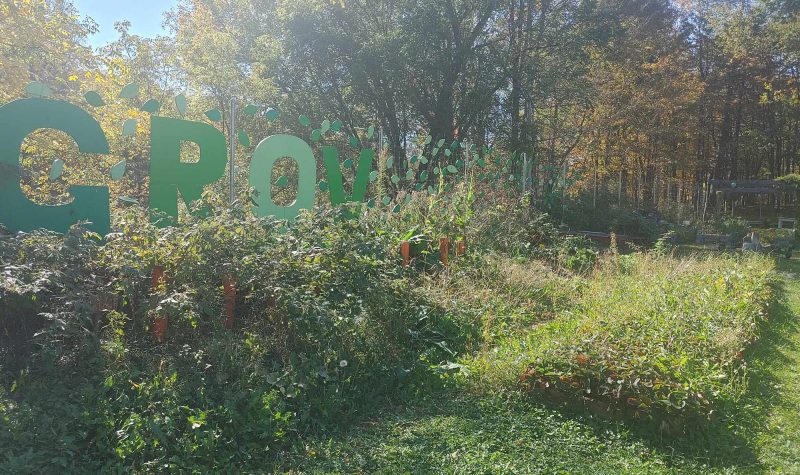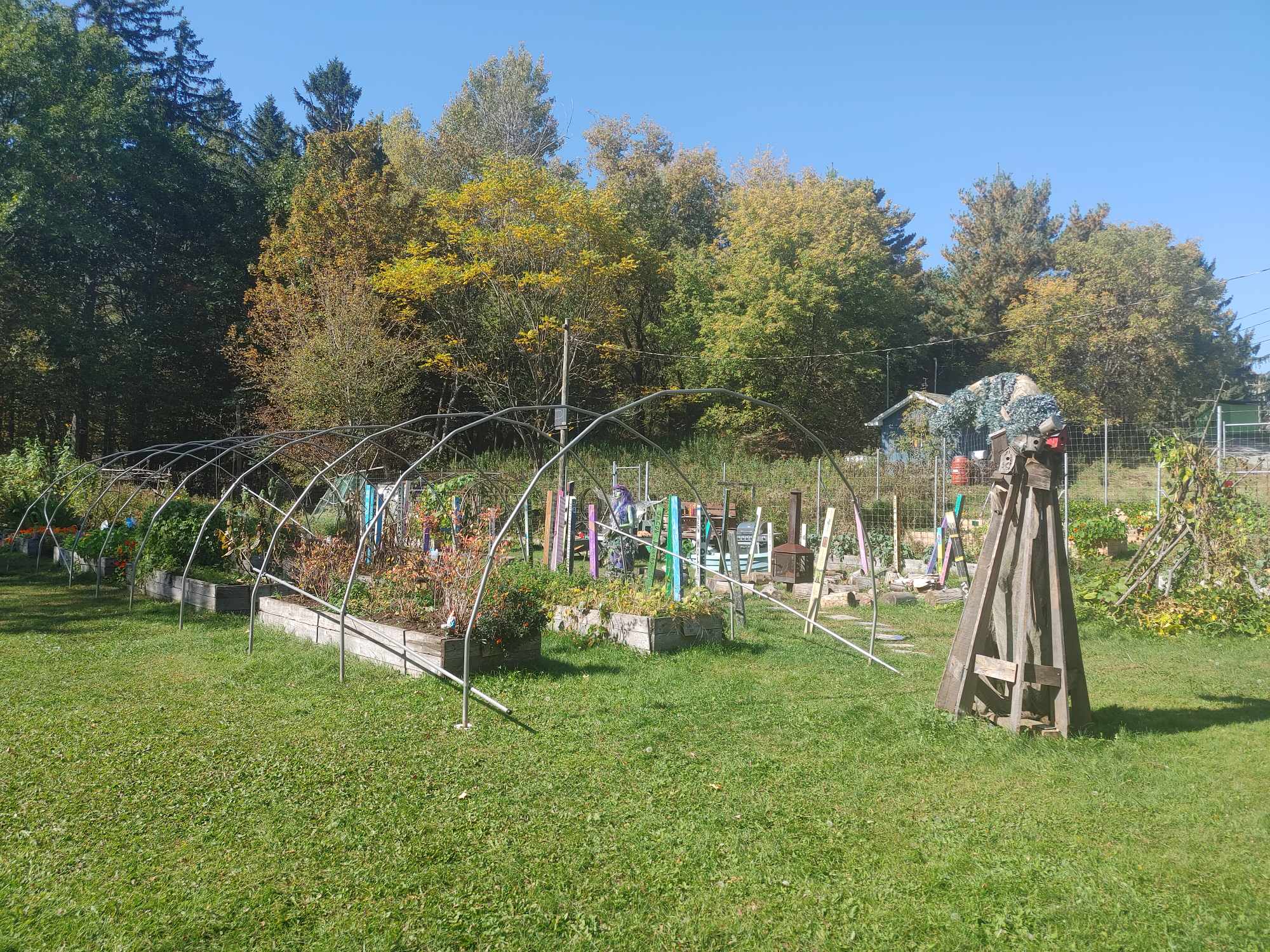The Knowlton Academy Secret Garden and Greenhouse Project continues to sprout bigger and better things and this year it has officially found its way into the school curriculum.
The project was started seven years ago. Heidi Neil and Matthew Quesnelle, both teachers at Knowlton Academy (K.A), are the team coordinators for the garden and greenhouse project this year. Together, they worked to incorporate the garden and greenhouse project into the science classes at the school.
“It was Shelley Mizener’s vision to come up with a curriculum garden based program and from there she enlisted a bunch of people that were interested, myself included. (…) We had small clubs at lunch under the support of Jennifer Ruggins Muir and Jennifer Harrison as well,” explained Neil. “Over the years, it’s sort of been growing with class participation until this year where we’ve transitioned from just a club and participation based program, to it being a class and science based - daily - program.”
With the expectations already placed on teachers, it made it difficult for them to bring the garden and greenhouse project into their classrooms, said Neil, and they wanted their students to have more opportunities to get in the garden.
“Over the last couple of years, staff have kinda of said ‘listen, we want to be more involved in the garden but we don’t know how to incorporate it into our day-to-day because of the expectations within the classroom, within a homeroom scenario.’ They wanted a little more out of the garden program so they decided that we needed somebody that is a teacher to help run it as such, so that it was science-based and curriculum oriented,” said Neil.
That’s where she and Quesnelle come in. Providing some examples as to how this is playing out in the curriculum, Quesnelle mentioned that students are currently in their seed unit.
“Right now, we are trying to get students in the garden. We were harvesting vegetables, nasturtiums, flowers, and getting students familiar with what was growing over the summer. (…) Right now, students are focusing on seed production, how seeds are made, and now we are getting into pollination and seed saving,” said Quesnelle.
“I run the early year science program, which is grade one and two, and Matt runs grade three to secondary one .. We’ve been doing the life cycles of plants and of seeds,” added Neil. “At the younger grades we’ve been doing pumpkins, apples, and exploring their favourite colours and so on. Matt takes it to the next level with his science knowledge-base and history of plants. He’s been wonderful down in the garden taking it to the next level as far as I’m concerned.”
Quesnelle noted that their goal in all of this is for students to experience more hands on learning through the garden “so that they understand not just what they’re learning in the classroom, but actually applying it in the garden.”
“I think one of the goals that I have for students when they graduate from here is for students to garden themselves. To see the differently styles of gardening that you can do and to understand how the harvest process goes, even take the seed saving to a little higher level. (…) Even just having a class in the garden, like we’ll have a regular class but do it outside, and they really enjoy that. It’s calming for them and it’s nice,” he mentioned.
Neil added that she hopes that the evolution of the garden and greenhouse project will only see the “seed-to-table” concept flourish that much more.
“I got into gardening years ago with students out west and what I learned is that a lot of kids, prior to being brought in the garden, if you ask them where their food comes from they’ll tell you it comes from the grocery store. I think about 20 years ago I decided that was not the answer I was hoping for from children,” she explained. “It’s important for them to experience the life cycle of plants and to be able to enjoy the seed-to-table concept. That’s really what our goal now is to get them in on a regular basis so that they can plant their seeds in the spring, take care of them, (…) and cooking!”
The Knowlton Academy Secret Garden and Greenhouse Project committee hosted its second Harvest Festival on Oct. 4 - the first since before the Covid-19 pandemic - and both Neil and Quesnelle highlighted that there are other future activities and events to look forward to now that the project has been incorporated into the daily lives of students at K.A, including pickling late this fall, a garlic fundraiser, a potential strawberry festival next spring, and a bee hive and bee club.
Excited about the direction that the Knowlton Academy Secret Garden and Greenhouse Project is taking, Neil and Quesnelle noted that they are just getting their feet on the ground but they hope to eventually bring the public in to experience the project for themselves.
“We don’t want it to be a secret anymore, we want it to be community based. (…) I think that as our program grows we’d like the community at large to be more involved. We were a little trepidatious this year because its been a number of years since we’ve done this, but we wanted to try it back on for size before we opened it full circle. (…) So stay tuned for that one,” said Neil.
Listen to the full interview with Neil and Quesnelle below:



